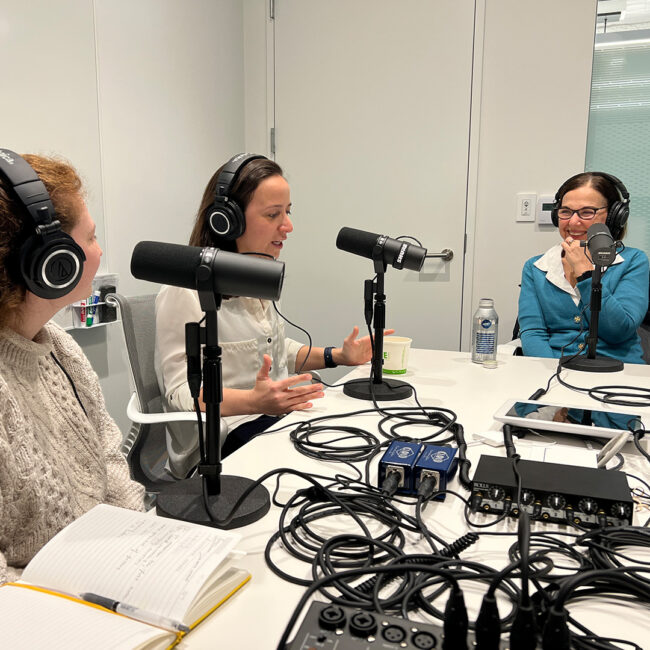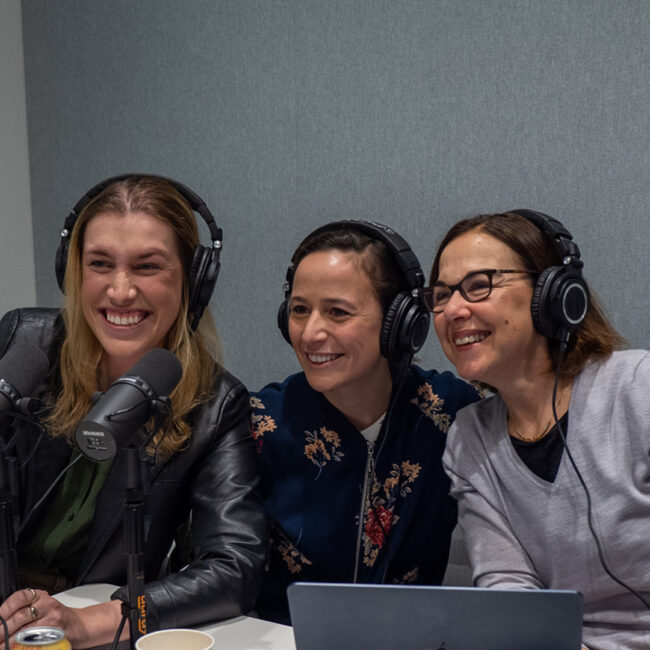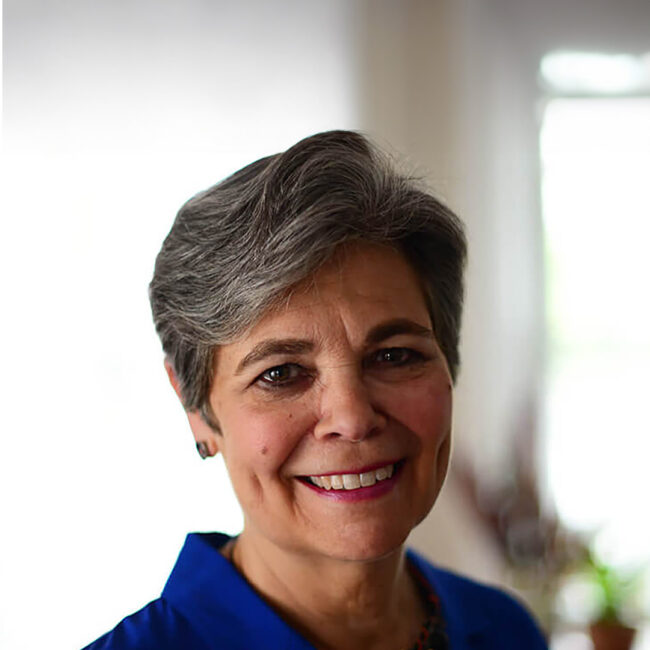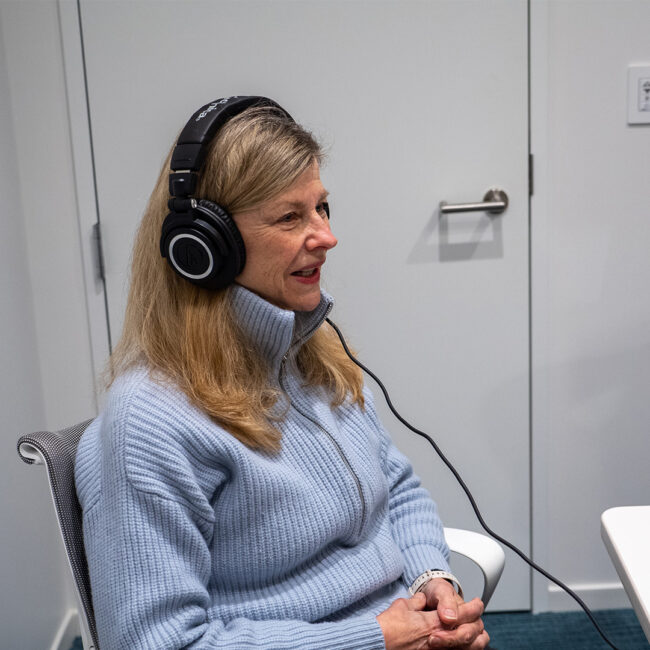
When your Doctor is a Cancer Survivor: A Conversation with Mike Glover
Episode Transcript:
Natasha Steele:
Welcome to Health After Cancer. I'm your host, Natasha Steele, and I'm joined today by my co-host, Elle Billman. Hey, Elle.
Elle Billman:
Hi, Natasha.
Natasha Steele:
Today we are so excited because we have Dr. Mike Glover in the studio. So, Elle, all cards on the table, Mike is one of my dear friends. He is also a colleague. He is an oncology fellow right now at Stanford, and I really got to know Mike over a shared passion for medicine, taking care of patients and our mutual enjoyment of sometimes painfully long bike rides around Northern California. After my diagnosis and treatment for my own cancer, I was really searching for community and people within my residency program who are both doctors and cancer survivors, and I just kept hearing from everyone, "You have to meet Mike, you have to talk to Mike Glover." And I am really so glad I did and I'm equally glad that he agreed to be in the studio with us today. One of the things I love about you, Mike, is not only are you a cancer survivor, but you're really translating your lived experience as a patient into training to be an oncologist. So, a huge welcome and thanks for being here today.
Michael Glover:
Thanks for having me. I'm a longtime podcast listener, first time podcaster, so I'm excited to be here.
Natasha Steele:
Yeah, we're all getting used to the sound of our own voice at the same time. Mike, can you tell us a little bit about your story and what brought you to cancer survivorship?
Michael Glover:
Sure, happy to. So I grew up outside of Chicago, was healthy, played a lot of sports growing up, was a totally normal kid. And right before I actually went to college, I first noticed something, I noticed a small lump on my testicle and actually, thankfully, said something about it right away, and it could sometimes be a little bit of an embarrassing thing to notice. But went to my pediatrician the next day actually and talked to him about it. He sent me to a urologist the next day, that was Monday. By Wednesday I had had a surgery to remove my right testicle. Unfortunately, that showed that there was testicular cancer there, which is the most common cancer in young men. And actually I had a subsequent surgery the next month and went to college, kind of a healthy kid with this kind of crazy story that happened over the summer, and was being monitored every month with x-rays.
About three months later into my freshman year I received a call from my oncologist who said, "Hey Mike, something looked a little weird on your chest x-ray. I want you to go back in for a CT scan." So I went back in for a CT scan not really thinking much of it, but my parents, who lived far away at the time, came down and said that they were a little bit nervous about what this might be. And I actually had a recurrence of cancer in the chest and the lungs at that time, so took a few months off college and went home to Chicago and was treated by my local oncologist. And since then I've been totally healthy. So that was about 11 years ago. At the time of my cancer diagnosis, I was a pre-med major and neuroscience major in college and kind of thought I wanted to be a doctor but wasn't really sure about what I wanted to do. And so I'm sure this kind of experience really taught me a lot about who I was and what I wanted to do.
Natasha Steele:
Yeah, it's an amazing story from going from the experience of being a cancer patient and getting treated and navigating what that feels like to being in the oncologist seat yourself. And what effect do you feel like oncology had on your life in terms of deciding your specialty? Obviously becoming an oncologist, but was it because of the way it felt being treated as a patient or was there something totally different about oncology that grabbed you?
Elle Billman:
I think it was the idea of discovery. So actually I had many experiences with different oncologists. One that really sticks out in my mind is a guy named Larry Einhorn, Dr. Larry Einhorn out of Indiana, and he is probably... I don't want to speak about his age... but he's been around for a very long time. In the seventies, he developed this regimen for testicular cancer called BEP, a three drug regimen that improved the survival rate from 10% to 90%, which it is today. And so this guy who's been around for a very long time, he's still kind of the expert in testicular cancer today. And so at the end of my treatment there was some concern that there might be still residual disease. My mom panicked, sent this guy Larry Einhorn an email at 10:00 PM on a Sunday night, and he responded to her in about five minutes and said, "Bring him to Indiana. We'll see him the next day."
And so that experience with him first taught me about who I wanted to be as a doctor, someone caring and thoughtful and understanding where people are in their journey, but also as a scientist, someone that developed this treatment regimen and was able to put it through trials and improve patients' lives. So that combination of things, being able to care for patients but also using research and developing science were kind of the appeal of oncology to me.
Natasha Steele:
I love that and I love the model that he set for you in terms of the kind of doctor that you wanted to become. And I can say from knowing you professionally and personally, I think you are well on your way to doing that for the people you care for.
Elle Billman:
Since this is a survivorship podcast we like to ask all of our guests, when was the first time you learned about survivorship?
Michael Glover:
Good question. I think probably in medical school, and I think that my journey to survivorship was a little bit odd because I was a pre-med major in college, but I was 18 and I really didn't take much in. My parents were always there for all the meetings. I didn't really think about what my life would look like after cancer. I think I was more focused about getting back to fraternity rush in my freshman year of college, honestly. So I wasn't really thinking about what my life would look like afterwards really until medical school when I would see the oncologist there and he would talk to me and say, "Hey, Mike, are you exercising? Are you eating well?" I was like, "Yeah, sure, but why do you care about these things?" And so that was my first introduction into what survivorship is and why do we care about survivorship.
Natasha Steele:
I think that's really interesting. I'll let you know Elle has talked a lot about her experience being an adult survivor of childhood cancer and when the consciousness shifts. You're describing a lot of similar situations. You were treated as an adolescent but your parents were really in the driver's seat when it came to coordinating a lot of your care and absorbing the information and taking it to heart in terms of what it meant to be a steward of your healthcare going forward. And I've heard you say a lot of the same things, Elle, and I'm curious, Mike, what was that shift like for you? At what point were you like, wow, okay, now I'm a medical student or I'm a doctor and I'm a cancer survivor and this means something for my future?
Michael Glover:
I think my oncologist actually in my medical school. You kind of grow and meet different people in your journey, especially when you move a lot like we do in medicine, so you kind of had my oncologist in Chicago, but then you also have to... when you move and reestablish somewhere else, you meet someone else. And this person really kind of emphasized to me this cancer is this lifelong journey. You've passed this point here but there's a whole lifetime of things you have to think about in the future.
Elle Billman:
How was it for you establishing care with new physicians and describing and informing them of your cancer history?
Michael Glover:
That's a good question. I think it was fine because I was connected to the medical system. I knew how to call people and ask for appointments. I think the one thing that has been difficult for me is just making the appointments. And so as a busy working adult, whether you're in medical school or a doctor or whatever, or just a working professional, you have to realize that these appointments are always during the day, they're always Monday through Friday. And so it's just difficult to make time to actually take care of these things, especially when you kind of like push it to the back of your mind.
Natasha Steele:
Can you talk a bit about your experience getting your medical records or understanding what the treatment's like when you were in college and how that's informed your understanding now as a medical oncologist?
Michael Glover:
I think fortunately I remember the drugs and kind of the general regimen, but I don't have any of the records and I don't have the pathology. And if God forbid, something were to happen where I were to need that again, I'm in touch with my oncologist who might be able to get it but other than that I really don't know how to do that. And I think that's a major issue that we have.
Natasha Steele:
Yeah, I feel like that's been one of the most unbelievable parts for me of interacting with cancer survivors across the age and lifespan is that that critical part of your health information is missing for a lot of people. And you're an oncologist, you're the perfect person that should have all of that information and it's still really hard. And I feel the same way as a physician. I'm the person that should have the knowledge and the understanding and it's still hard. And so I always imagine what it's like for different patients who aren't maybe as fluent in a lot of the medical terminology or understand how to get the records, things like that. It's just a huge problem.
Michael Glover:
How about you, Elle?
Elle Billman:
Yeah, getting my medical records was a little bit of a journey. The point at my life when I kind of became conscious about survivorship and that it was important for me to be aware of my cancer history so I can manage my health in the future, happened in high school when I was dealing with some late effects. And as a high schooler, I didn't want to talk to my parents about my cancer history so I went about trying to figure it out myself. And it kind of got to a point when I was like it's really important that I know this stuff about myself and I got really frustrated that I couldn't figure it out on my own. I ended up actually calling the hospital that I was treated at and requested that they send me all of my medical records. So I got 500 pages, loose-leaf, in the mail, and I looked at them a little bit but now they're in a drawer and maybe I'll refer to them if I need to, but so far I haven't needed to.
Michael Glover:
And those records will have many pages full of vital signs you don't care about and meds that you didn't need to know. I've seen those pages many times.
Natasha Steele:
I feel like every time a patient comes in who's been transferred from an outside hospital, like 70% of what accompanies them are observations about if they were calm in bed or just like random things that you're like, "Wow, this really isn't helpful in the longitudinal care for this person." I think many of those elements are part of billing and part of the bigger issues within the healthcare system that cancer survivors inadvertently face.
Michael Glover:
Can we plug it all into ChatGPT to distill it down for us or something?
Natasha Steele:
I'm really hopeful ChatGPT is the answer to survivorship, to be honest with you. No, I'm just kidding. Can you talk a little bit about if and when you prepare your own patients for survivorship, what does that look like? We've heard from a lot of people that we've interviewed the moment that they heard survivorship would be a challenge, while they were getting active treatment, is so vivid for them. They were going through chemotherapy and they heard or they saw a TED Talk or they observed somehow that this next phase was going to have its own you unique challenges. And how do you go about that in your own practice?
Michael Glover:
I think you have to take a multifaceted approach. The first time I talk to someone, the first time you discuss the treatment plan, it's obviously important to talk about what are some side effects. One, of the active drug, but also kind of future things you think about. So in terms of radiation, you always have certain kind of long-term effects of radiation, different chemotherapy drugs have those things. It's important to talk about those upfront, but I think it's so hard to take that all in when you're hearing about your cancer treatment, that it's maybe not the best time to really talk about that then. I kind of hopefully talk about things as we go through the path and say, "We're again kind of checking your cholesterol because it's important to think about your long-term cardiovascular health," and things like that kind of as you maintain the relationship with the patient going forward. So I think it's something you kind of continuously do throughout the journey.
Natasha Steele:
Yeah, I think as both a survivor and a physician, I struggle with knowing at what point how to balance information with assurance, because I've also seen survivors reflect on maybe a chemotherapy choice that they would've made a different decision about had they known everything. And as doctors, you can't possibly list every side effect for every drug. You can talk about big ones but not all of the smaller risks. And so I think it's hard and I think, like you're saying, you have to individualize it as well, because what some person might consider too much information is too little for the next patient.
Michael Glover:
I think we always have to make the best decision we can with the information we have. And so as a doctor, as a patient, we take everything we possibly can and try and make the best decision, realizing that there'll be things in the future that we don't think about.
Natasha Steele:
Can you talk a little bit about your identity as a patient, as a cancer survivor, and your identity as a physician and how those two intersect?
Michael Glover:
I never really thought of myself as a cancer survivor for the first maybe six or seven years after I had received treatment. Like I said, I went back to college and I joined a fraternity and I did all these other things and I thought, "Oh, I'm this person. I'm this person." But it was never like, "Oh, I'm a cancer survivor." And then I think through medical school and residency and seeing these patients and identifying with not just people that had testicular cancer or people that even have cancer in general, but someone who was young and went through this kind of traumatic thing, I really started identifying myself more with those people and try to think about some of the things that people like Dr. Einhorn, but also my own oncologist, Dr. Amit Mehta had taught me, about what I want to be in a doctor. So identifying the compassion and the different traits I saw in them that I wanted to exemplify as well.
Natasha Steele:
Do you ever include your own diagnosis or your own experience in the care of your patients and disclosure or things like that?
Michael Glover:
Yes, I do. And one of the major things I focus on in my own research is the youth cancers and so cancers of the bladder and prostate and kidney are more common, but also we see young men with testicular cancer, and I really do think it's important and it's helpful sometimes for them to see what the other side looks like and for me to talk about my journey. And even if it's not the exact same thing they're going through and I don't try to say, "Oh, this is what you should do, but this is just an example of what I went through and why I understand what you're going through as well."
Natasha Steele:
I think that humanness and that connection and sort of a leveling of the playing field when it comes to the vantage point that you're delivering information to the person you're caring for.
Michael Glover:
And I think it's just such an intense bond between yourself and your oncologist, and so I almost felt like if you're treating someone and you didn't disclose that, I was almost holding something back from them in saying, "This is who I am, this is who you are, and we kind of meet here." And it's such a dramatic part of people's life when they're dealing with cancer that I feel like it's good to be on the same page as them.
Natasha Steele:
I think also that the idea of hope is so important in the world of cancer, and I think it probably gives people that sentiment when you interact with them and you say, "Hey, this is what I've been through. We're going to do this together. I'm going to be by your side every step."
Michael Glover:
Totally.
Elle Billman:
One of the goals of this podcast is to have really diverse perspectives featured, and I'm curious to hear if you can speak a little bit about some of the issues that may be specific to people that identify as male as they're navigating survivorship.
Michael Glover:
Yeah, definitely. So from the very beginning, I was 18 years old and I had a cancer of my testicle and so one of the first things you think about is how will this affect my life and also my future children. And so from the very beginning it was kind of brought up by my oncologist it would be important to do fertility preservation. I will say that kind of my own experience I'll share, I started this journey as an 18-year-old man and I had a cancer of my testicle and so I think naturally one of the thoughts are about fertility preservation, my future children and how this would affect my myself.
I think my oncologist was upfront with that and talked about it from the very beginning and recommended that I did that. I went through that with my parents, and I was 18 years old and I didn't really kind of keep track of that in the future and so honestly it was kind of put out of mind, and it's something that you have to think about and continue to support and pay for it basically. I banked sperm but then forgot about it and stopped paying for it and I lost that sperm.
Natasha Steele:
Mike, I just want to pause. What you said is a big deal. I can only imagine the experience of going through banking your sperm and then thinking that you have it there waiting for you when you get to the stage of life where you're going to need it, and then all of a sudden having it destroyed. I can't imagine what that felt like. Can you talk a little bit about what the conversations were like with your medical team around fertility preservation while you were going through treatment?
Michael Glover:
I think it was kind of important at two different time points actually for me. One was prior to surgery, I had a large surgery on my abdomen that posed a risk to different things involved in fertility, so he actually upfront, the surgeon, made sure that I went to this kind of private clinic in Chicago to do fertility preservation. And then again prior to chemotherapy. I think one thing that can get lost as we talked about in survivorship before, is that you have to stay on top of these things. And so making sure you're paying for your ongoing sperm banking, things like that can be very difficult to stay on top of, especially as you transition from the pediatric side to the adult side.
My surgery, I was 17 and 11 months and I had scheduled for, I think it was say Wednesday, and they called me on Monday and said, "Hey, you actually have to go to surgery on Tuesday because you have to operated on in the pediatric wing of the hospital and we don't have a spot in the pediatric wing of the hospital on Wednesday, so we're going to surgery tomorrow." And so I think that kind of transition, I was really truly right at the bound of pediatric and adult for fertility, for just my entire treatment in general I had to keep in mind going forward.
Elle Billman:
Speaking of fertility, I'm kind of going through an interesting time for me because I'm 25, I'm still on my parents' insurance, and I found out that the insurance that we have covers egg freezing if you have a medical history that suggests that you may have impaired fertility. I'm leaving for medical school soon so I've kind of been trying to figure out, okay, I should really try to maximize this insurance and consider egg freezing if it is needed. So I've been going through that and it's just very odd to be thinking about it now because fertility and having kids is something pretty far off for me still, and I'm still kind of figuring out what I see for my future in that regard.
Michael Glover:
Well, congrats on medical school.
Elle Billman:
Oh, thank you.
Natasha Steele:
I think cancer and cancer survivorship accelerates so many processes that are different than age appropriate milestones. And I think your example of fertility, both of yours, is one of them. It's just something that wouldn't necessarily be on your radar. I see a lot of cancer survivors who have premature cardiovascular disease because of their radiation or some of the medications they were on, and those things just aren't... you wouldn't even know to think about them if you hadn't had these experiences. So I think so much of survivorship is figuring out what you don't know that you don't know, and reframing the way that you approach your health.
Michael Glover:
Totally. And just kind of jumping off one of the things you brought up, which is totally true, it accelerates basically everything in our life. I'm curious, Elle, how early do you disclose with a partner, kind of what you've been through?
Elle Billman:
Well, it's been pretty easy these past few years because I spend a lot of my free time doing survivorship stuff. So any person who asks me consistently, "How was your day?" it becomes pretty obvious that I'm very invested in survivorship. I disclose it pretty early on because it's just a part of who I am. I always try to disclose it in a way that's this is just a part of my history. It's kind of like the fact that I have blue eyes or red hair. It's just a part of me, but not necessarily something that has a lot of emotion surrounding it still.
Michael Glover:
I think in particular your question of how male survivorship might be different, there's stigmatisms about sexual organs, testicular cancer, things like that, that I had to kind of worry about or think about, especially when I was 18. Now I'm more confident in myself and don't really worry about that type of thing. But that was definitely something that was difficult and it kind of accelerated my conversations with any potential partners to say, "Hey, just so you know, this is what I've been through." And so I probably discussed things probably earlier than I would otherwise.
Natasha Steele:
The other thing I found in disclosure conversations is that people have such a wide range of responses, and I find myself having to manage people's emotions a lot of the time. So if you say, "Oh yeah, I'm a cancer survivor," and their first response is, "Oh my gosh, I'm so sorry," then you're all of a sudden in a place where you're navigating someone else's emotional response and reassuring them saying, "No, no, no, it's okay." And that is exhausting to do at scale. And so I have found for my own energetic preservation that it's really important for me to pick and choose when, whether it's in a personal setting or a professional setting, because people... while they are well-meaning... will take up a lot of space with their emotional response to your diagnosis.
Michael Glover:
Totally. And the other kind of interesting thing on that is when I'm talking to people and they had that kind of emotional reaction, I always respond, "Oh, actually it's a good cancer. I'm fine. It's been 12 years, I'm fine." But I think that's also kind of taking away from some of the experience, especially for me somewhat, but honestly more for my parents. This wasn't a good cancer for them. It was very traumatic and this was a very long experience for them. So I think also we kind of take away from ourselves a little bit when we have to constantly reassure people we're fine.
Natasha Steele:
Yeah, I totally agree with that. And I agree that it also creates the sentiment of it wasn't that bad. It's totally fine. Where it's like, yes, and any illness is a trauma on the body, on the family unit, on your community in so many different ways. It kind of like ripple affects. And so I think I've seen a lot of survivors maybe they didn't have chemo, they only had surgery, or maybe they only had chemo and not radiation, and they feel less entitled to this grief period or this identity because they're like, "Well, it wasn't like you see in the movies," or "It wasn't like my friend who unfortunately passed away," and I think that does not serve anyone. And we certainly wouldn't say that to our patients. We wouldn't be like, "You have the good cancer. This is going to be fantastic. You're going to love it."
Michael Glover:
Well, I do think one of my early experiences, an oncologist kind of did say that to me, and I think it really was hard on me because I was like, "This is not good for me." So it's something I kind of carry forward with my own patients.
Natasha Steele:
And I can imagine now in oncology, because you see a wide range of pathologies, when you encounter something that is more treatable you're excited and you want your patients to feel that excitement, but it takes that space from them of really owning what just happened to them.
Michael Glover:
Whenever I see a germ cell tumor in a patient in clinic, I do think, "Yes, this is a good cancer," but I don't say that to them.
Natasha Steele:
One of the cool things I think about the three of us being in the studio today is, Mike, you and I are practicing doctors, but Ella, you're about to start medical school. And being a cancer survivor, really I'm trying to picture how you're going to feel for the next four years learning about cancer biology and taking care of patients, having been through that experience yourself. Have you thought about that at all?
Elle Billman:
Yeah, I have thought about that quite a bit. I think in medical school I will have a lot of realizations because I remember parts of my cancer treatment, but it's through the lens of a three-year-old. So I'll give two examples. The first one is I remember I occasionally would have some type of scan done, and in the scan I remember feeling pressure applied to my back. I have no idea what this scanner is called, but as a three-year-old, I called it a donut machine.
Natasha Steele:
We still call it a donut machine. We call it the donut of truth. Yeah, the CT scan.
Elle Billman:
Oh, okay, so it's the CT scan. Yeah, so stuff like that. In my mind there's this machine called a donut machine, but I'll have to learn that it's actually called the CT scanner. So realizations like that. And then-
Natasha Steele:
But I think, Elle, can I just interject, I think it's going to make you so much better. Right? Because you're going to know when you order a CT scan for someone, you'll be able to say to them, "I used to call this a donut when I was a kid. It's not a very long scan. I know what it feels like to be in there." You're going to have such a different perspective taking care of people who are going through something really difficult having done it yourself. Even though you don't have distinct memories of the entirety of your treatment, you still within the last 20 years of your survivorship, you've amassed such a wealth of wisdom that will really, I think, fuel you in taking care of other people.
Elle Billman:
I really appreciate you saying that. I think something I have to think about more is how much I'm going to disclose my cancer history to my patients. It really just something I've thought about a whole lot. Regardless of whether or not I disclose that upfront to them, I definitely always want to kind of remember how much I resonate with the patient experience and have that be something that's really like a guiding force for me as a physician. So I'm really honoring the patient experience when I'm delivering medical care.
Natasha Steele:
Yeah, I love that. And I in no means meant you have to tell your patients, "Oh, I was three. I had leukemia." Certainly I think the discussion of disclosure when it comes to personal illness in professional settings is a whole nother topic that I know you and I have talked so much about both on this podcast and just with the two of us. But I think even saying, and I'll say this to patients all the time, I'll say, "I've been a patient in this hospital," and you don't even sometimes have to say anymore, you just allude to, "I get it. I've been there. I know how hard this is." And sort of take a deep breath and create space for the challenge that they're going through, and I've found that to be something that's really, really valuable because it's authentic. Right? You really do connect with people in a very different way when you understand at least a part of what they're experiencing.
Elle Billman:
Yeah, it's going to be a very exciting and I'm sure I'll learn as I go along. I love hearing you talk about how your perspective of, or maybe how you delivered care, changed after you were treated as a patient. I remember the example you give is now whenever you have a patient who's laying in bed, you'll like sit down or kneel down so you get at their eye level, and I just love that and I want to be a physician who does that too.
Natasha Steele:
I love that, and I can only imagine that your experience as a patient has informed your understanding of what makes a valid endpoint when looking at cancer therapeutics. So that's fantastic.
Elle Billman:
As a cancer survivor and a future physician, I've learned so much from this conversation. So Mike, thank you so much for coming in and chatting with us. I'm excited for us to circle back in four years once I'm a doctor and have more perspective that I can share.
Michael Glover:
Thanks so much for having me on. I look up to both of you, so it's really awesome to be involved in the podcast.
Natasha Steele:
Mike, I just want to say another huge thank you to you for being here today and sharing your hard-earned wisdom with us. I know that every time you and I sit down and talk about these issues, I learn so much, and I'm really excited for our listeners to get your vantage point as well. So thanks for taking the time and sharing this space with us.
Michael Glover:
Thanks.
Elle Billman:
If you enjoyed this episode and you'd like to help support the podcast, please share it with others, post about it on social media, and leave a rating or review. Your hosts today were Elle Billman and Natasha Steele. This podcast is produced by the Stanford Medicine EdTech team. Our producer for this episode was Deila Bumgardner. Our creative director is William Bottini. Our sound engineer is Bindu Madhava. This episode was edited by Grace Sextro. Our guest today was Mike Glover. For more resources and information from our hosts and guests, please visit our podcast website at www.healthaftercancer.com. Thank you for listening.
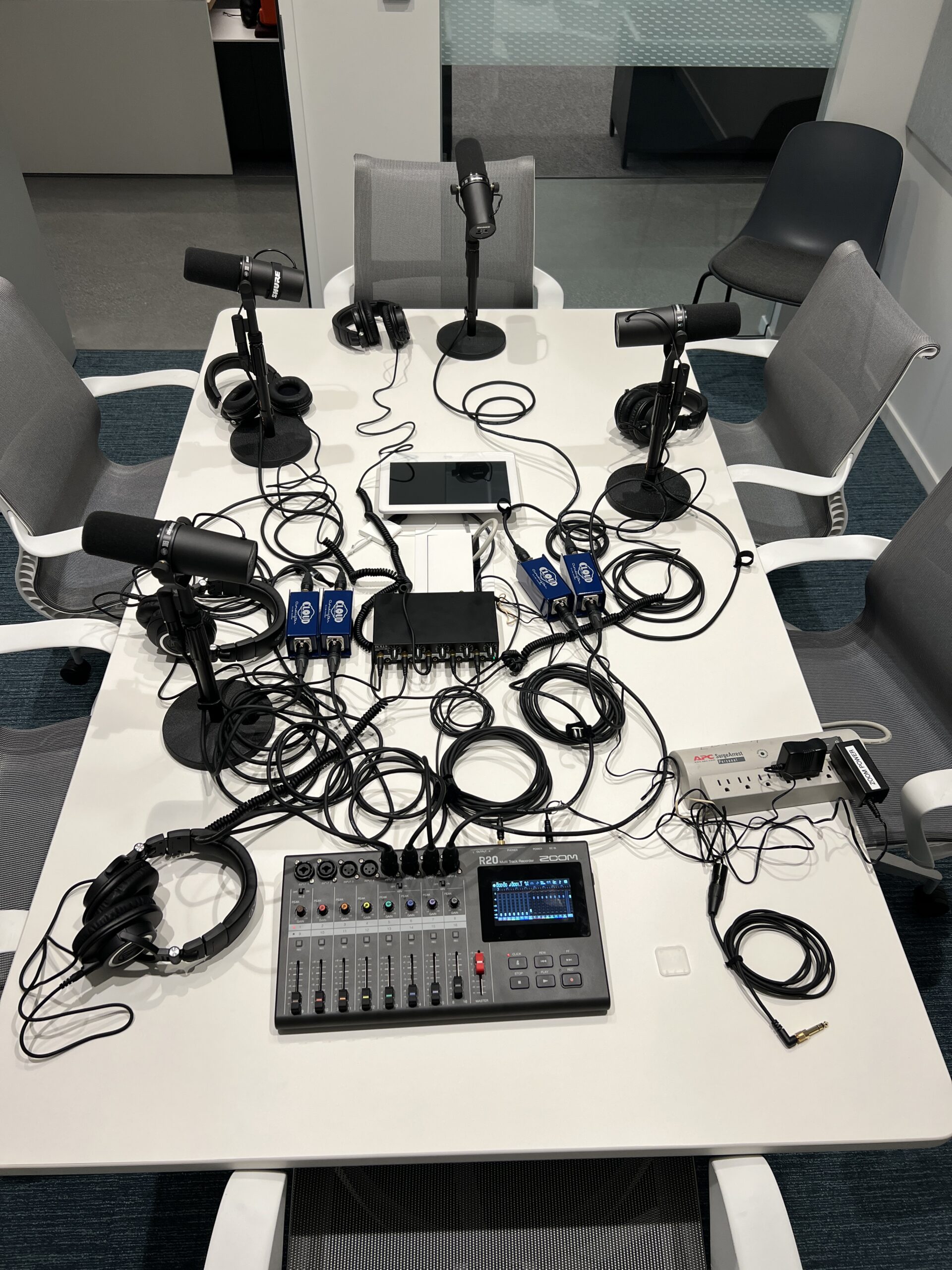
Meet your hosts:
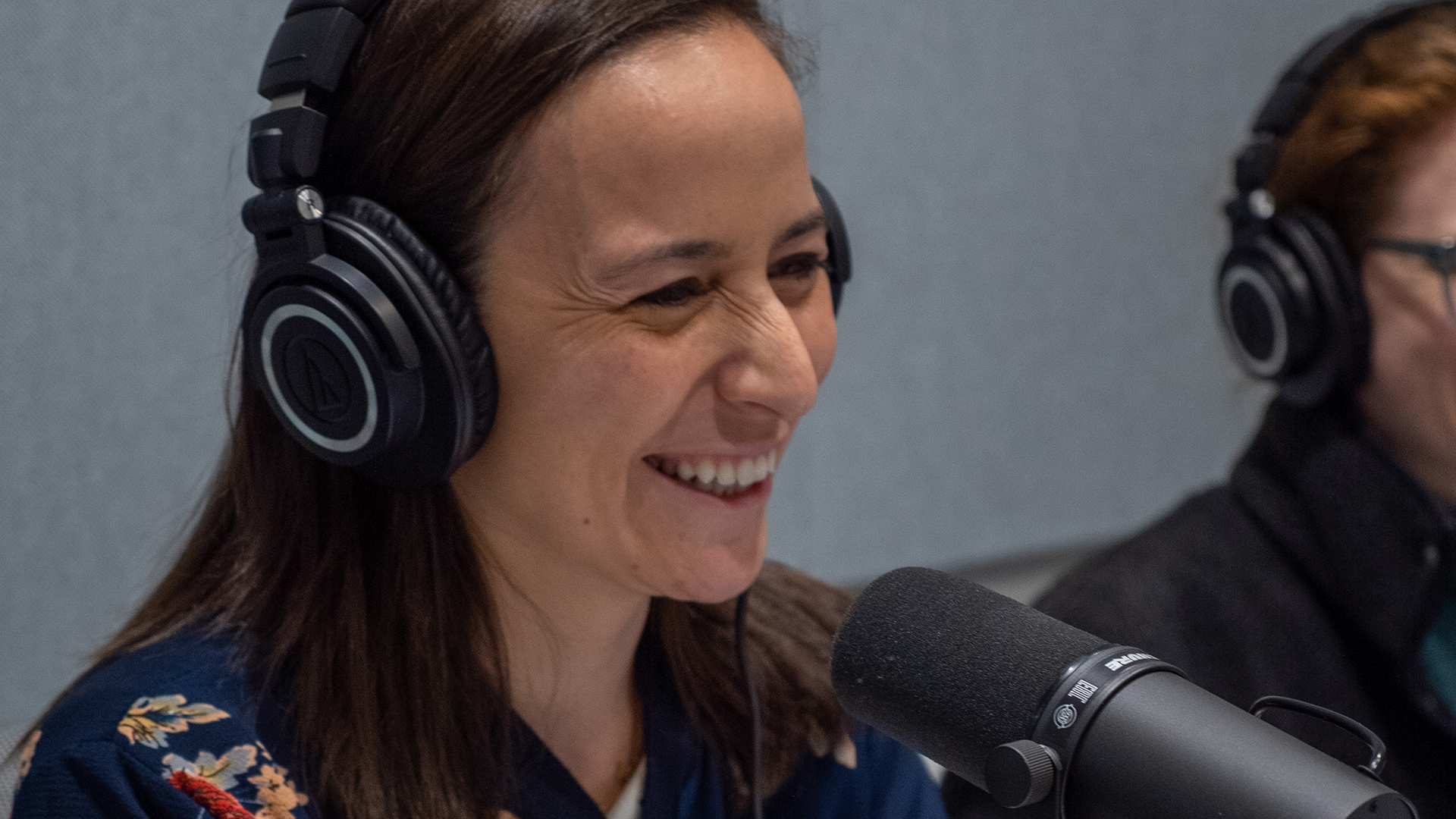
Natasha Steele
Natasha is a young adult cancer survivor, an internist and researcher, and an incoming faculty member at Stanford Medicine.
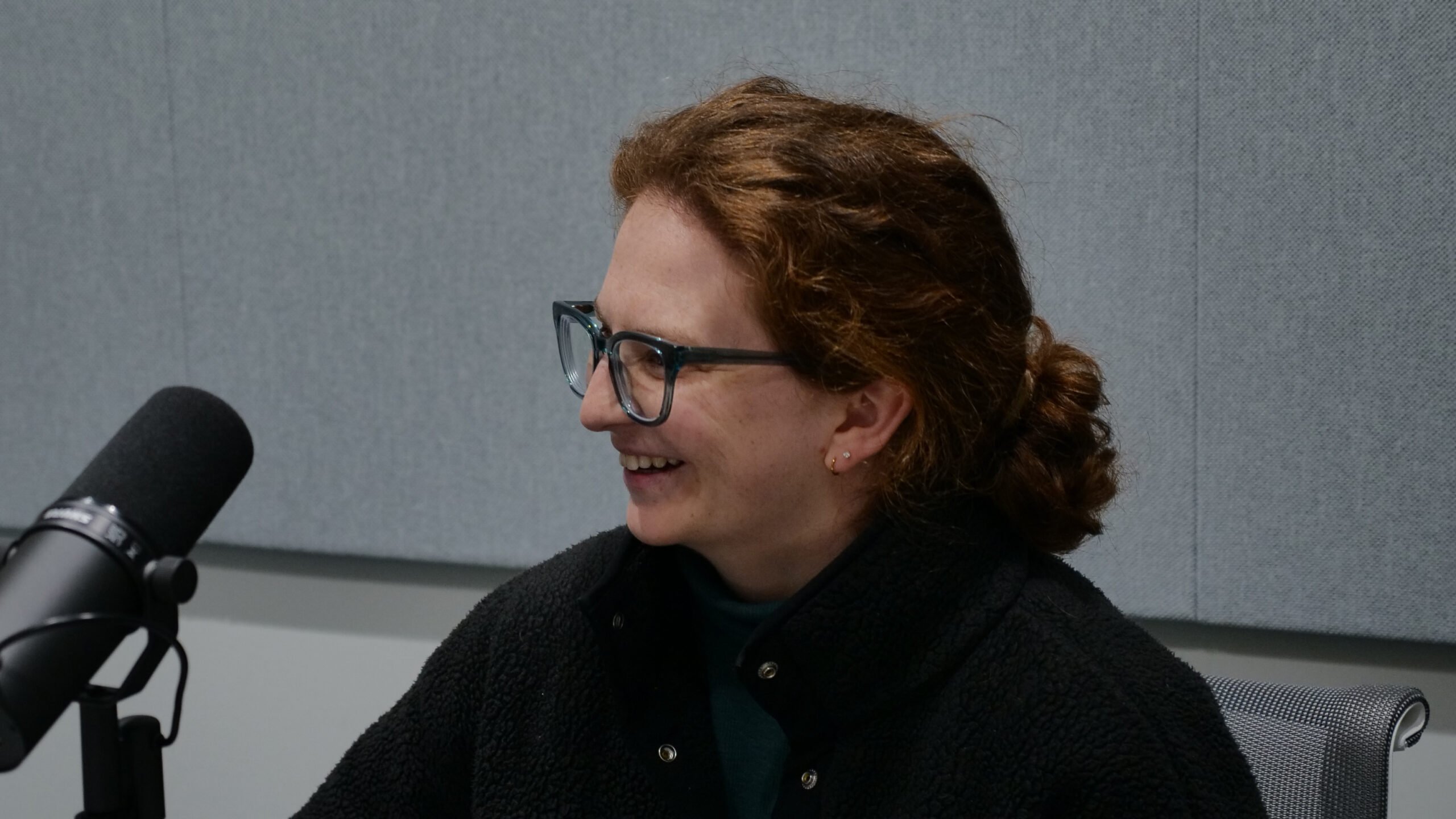
Elle Billman
Elle is a childhood cancer survivor and 2028 MD candidate at the Ichan Medical School, at Mt. Sinai, in New York.


